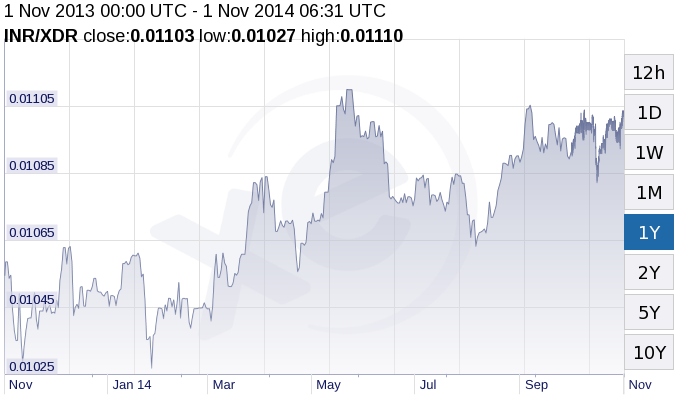Oil price, both Brent and WTI falling again today after a brief rise on Friday. Oil price is at a four year low and falling and expectations are of further fall. Reports said earlier that Russia is preparing for a big fall in oil all the way to $50 a barrel.
With it is falling our Indian inflation too. With Consumer Price Inflaion down to a little above 5% now in India, we now have a real positive interest rate. At 8%. CPI at 5+% is now below Rajan's 6% target he wanted to achieve in 2016.
As per RBI data now, deposits growth is increasing in India and loan growth is slowing due to high interest rate.
With slowing Europe, China and Japan now in recession, the deflationary forces are now in India too.
RBI will be very hard pressed to justify not reducing rates. I guess they might reduce rates in next meeting if oil price world wide continues to slide.
Rajan himself said earlier that his actions will be data driven. Now that data is all down, pressure on him to down the rates are up.
Expect bond holders to gain and bank and other credit dependent stocks to rally when that happens.
With it is falling our Indian inflation too. With Consumer Price Inflaion down to a little above 5% now in India, we now have a real positive interest rate. At 8%. CPI at 5+% is now below Rajan's 6% target he wanted to achieve in 2016.
As per RBI data now, deposits growth is increasing in India and loan growth is slowing due to high interest rate.
Growth in aggregate deposits accelerated to 12.3 per cent in September 2014 from 11.5 a year ago whereas gross bank credit decelerated to 9.5 per cent from 15.1 per cent during the year. This acceleration in aggregate deposits as well as deceleration in gross bank credit was broad based and observed across all population groups.
With slowing Europe, China and Japan now in recession, the deflationary forces are now in India too.
RBI will be very hard pressed to justify not reducing rates. I guess they might reduce rates in next meeting if oil price world wide continues to slide.
Rajan himself said earlier that his actions will be data driven. Now that data is all down, pressure on him to down the rates are up.
Expect bond holders to gain and bank and other credit dependent stocks to rally when that happens.





















